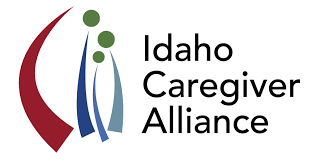Respite is a break from care giving. Respite is time away, if only for a few hours, to recharge your own batteries. Respite can be a walk in the park, lunch with a friend, or simply reading a book in another room without fear that you’ll be interrupted. Respite can be planned – like a vacation – or can come up suddenly with an offer from a friend. Respite can be paid for or provided by family members, friends, or volunteers at no charge. Respite can take place in your home or in a facility such as a day center. For more information on the types of respite, visit the Arch National Respite page and the ABCs of Respite.
Why is respite important?
Respite is imperative to the health and well-being of caregivers. Caregivers who feel rested and rejuvenated are able to provide better care for their loved ones. Caregivers who have frequent breaks from their responsibilities are able to provide care longer than those who do not. Caregivers who receive respite are less likely to become sick or disabled themselves. And caregivers aren’t the only ones who benefit from respite. Those on the receiving end of care may benefit tremendously from having a new friend!
Who is eligible for respite?
Anyone caring for a family member, friend, or neighbor is eligible for respite. Some organizations provide respite for specific populations like children with disabilities or older adults with Alzheimer’s disease. However, every caregiver owes it to him or herself to seek out and accept respite.
How can I locate respite services?
You can locate respite services through this site Respite Programs in Idaho, through your local Area Agency on Aging, and through the 2-1-1 CareLine.
Does the ICA pay for respite?
No. The ICA does not provide funding for respite care. However, it is the mission of the Idaho Caregiver Alliance to provide information and links that improve access to respite.
Is respite covered by Medicare/Medicaid?
Idaho does provide a Medicaid Waiver which includes respite services. To find out if you qualify, contact the Idaho Department of Health and Welfare at 1-877-456-1233. Additional information can be found on the Arch Respite website at http://archrespite.org/images/state_pdf/medicaid/idaho.
Can I get paid to take care of my loved one?
The Idaho Department of Health and Welfare’s Certified Family Home Program may be a viable option for those meeting the established criteria. The program requires certification and ongoing training and the person receiving care must qualify for Medicaid. To determine if this is a good fit for your family, contact the Department of Health and Welfare at (208) 239-6263 or visit http://healthandwelfare.idaho.gov/Providers/ProvidersFacilities/StateonlyPrograms/CertifiedFamilyHomes/tabid/396/Default.aspx
Another method is to become employed by an in-home healthcare provider/home health agency near where your loved one lives and become assigned to your loved one as a client of the agency. Your loved one can pay the agency fees and you would be paid as an employee. This also may be an option if your loved one qualifies for financial assistance through the Idaho Department of Health and Welfare (IDHW). To determine if your loved one qualifies, apply at your local IDHW office. If your loved one qualifies for assistance they may be eligible for an array of services.
http://www.healthandwelfare.idaho.gov/FoodCashAssistance/ApplyforAssistance/tabid/1554/Default.aspx
What services are available for Veterans?
The Veterans Administration (VA) offers caregiver respite and other supports for family members caring for a veteran. The level of support varies depending on when, where, and how the veteran served. For instance, those caring for a veteran of post 9-11 (September 11, 2001) service qualify for different supports than those caring for veterans of previous wars. To determine the level of support for which you qualify, contact the Idaho Division of Veteran Services at 208-780-1300 or visit http://www.veterans.idaho.gov/. In addition to inquiring about respite, be sure to ask about the VA’s online Caregiver workshop series.

